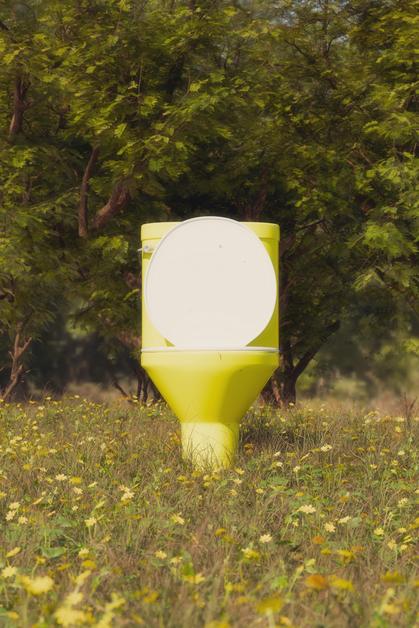Frequent bathroom trips — sometimes as urgent as flipping a light switch, sometimes creeping up without warning. As a parent-to-be, questions can begin to multiply. Could “frequent urination pregnancy” be a sign of something more than just a growing baby? Is every trip to the restroom a cause for concern, or a natural side effect of a body busy bringing new life into the world? The discomfort, interruptions, and inevitable race to find the nearest bathroom all spark a mix of apprehension and curiosity. Here, the focus is on clear explanations, up-to-date medical guidance, and practical reassurance, recognizing the exhaustion and uncertainty that often accompany this symptom. You’ll find both the science (yes, hormones play a starring role) and day-to-day solutions for a smoother, more comfortable pregnancy experience.
Why Does Frequent Urination Happen in Pregnancy? Medical Insights and Bodily Changes
Have you ever wondered why endless trips to the restroom start so early, sometimes before your pregnancy even announces itself publicly? “Frequent urination pregnancy” doesn’t just arrive out of nowhere — it has distinct biological triggers.
- Hormonal surges: The moment pregnancy begins, hormonal currents surge, particularly with human chorionic gonadotropin (hCG). This hormone, rising rapidly after conception, increases renal blood flow, meaning your kidneys process more fluid, and your bladder faces increased activity. This makes the urge to urinate harder to ignore, even when the bladder is only half full. In parallel, progesterone — another key hormone — relaxes the smooth muscle tissue of the bladder and pelvic floor. This relaxation reduces bladder control, often surfacing as accidental leaks or a sudden inability to “hold it” when laughing, coughing, or sneezing.
- Expanded blood volume: Did you know that during pregnancy your bloodstream effectively becomes a busy highway, carrying up to 30% more fluid than usual? The kidneys, acting as diligent filters, must handle all of this extra fluid. The result is straightforward: a bladder that fills more quickly, making “frequent urination pregnancy” an almost universal experience.
- Mechanical pressure from the uterus: Imagine the baby and uterus as ever-expanding occupants within a limited space. As growth accelerates—especially into the third trimester—the uterus exerts more direct pressure on the bladder, reducing its holding tank capacity. The effect? You sense a need to urinate even if only a small amount is present.
This interplay between hormone-driven changes, increased circulatory activity, and the sheer physics of uterine growth underpins why urinary frequency is so intense and, at times, unpredictable during pregnancy.
The Ebb and Flow: How Frequent Urination Changes With Each Trimester
Is the need to urinate a constant from start to finish? Not quite. “Frequent urination pregnancy” tends to ebb and flow, with distinct patterns for many.
- First trimester: Urge and frequency can be surprising — showing up before a bump appears. The body, under the direction of new hormonal orders, signals the bladder to empty more often. Many parents notice a sharp reduction in freedom outside the home, mapping out every public bathroom like a seasoned traveler.
- Second trimester: As the uterus rises higher, pressure on the bladder can temporarily ease. You might find you reclaim deeper, less interrupted sleep and enjoy outings with fewer emergencies — although there’s always a range.
- Third trimester: The baby settles lower as weeks advance, its weight descending directly onto the bladder again. Here, urgency skyrockets, sometimes for just a trickle of urine, and night awakenings become routine for most.
When Is Frequent Urination Normal, and When Should You Be Concerned?
With “frequent urination pregnancy,” what counts as ordinary, and when is it reason for further investigation? The medical details here matter.
- Normal, expected patterns: Most adults urinate six to seven times daily. In pregnancy, eight or more trips—a number that can easily double at night—is considered routine.
- Signs of healthy urinary frequency:
- Urges occurring even with smaller volumes of urine.
- Night awakenings (nocturia), occasionally requiring a flashlight for late-night navigation.
- Minor leaks triggered by sneezes or laughter, not accompanied by discomfort.
- Urine that remains pale yellow, without a strong odor.
- Red flags requiring medical advice:
- Any pain or burning while urinating.
- Blood, cloudiness, or foul scent in urine.
- Lower back or pelvic pain.
- Fever, chills, or unexplained fatigue.
- An overpowering urge paired with minimal output.
Sometimes, infections sneak in silently, causing minimal symptoms. This is precisely why urine screenings are standard in prenatal check-ups — to keep a proactive eye out for problems before they become severe.
Everyday Comfort: Practical Tips to Manage Frequent Urination in Pregnancy
Looking for ways to make peace with your bladder? Not everything can be controlled, but several strategies can minimize inconvenience and maximize well-being. “Frequent urination pregnancy” can become less of a disruption with actionable tactics:
- Thoughtful fluid intake: Rather than drastically curbing drinking, aim for 1.5–2 liters (8–12 cups) of water daily. Proper hydration prevents complications like urinary tract infections and keeps kidneys working efficiently. To ease night awakenings, concentrate more fluid intake in the early part of the day and taper off two to three hours before bedtime.
- Monitor urine color: The gold standard for hydration — pale yellow urine. If it darkens, increase water intake; if it stays clear, you may be overhydrating.
- Avoid triggers: Caffeine, commonly found in coffee, tea, sodas, and energy drinks, acts as a diuretic and can amplify urinary urgency. Some find acidic foods (like citrus or tomatoes) irritate the bladder, so adjusting these can offer relief.
- Comfortable clothing and hygiene: Clothing that’s loose and non-restrictive minimizes abdominal pressure. Cotton underwear keeps the area dry, while regular pad changes decrease irritation and infection risk. Always wipe front to back, and skip fragranced wipes or harsh soaps to preserve natural vaginal flora.
- Don’t “hold it”: Delaying urination may increase infection risk. Respond to the urge promptly — especially before sleep or outings.
- Techniques to empty the bladder: Leaning forward slightly, while seated, can help ensure the bladder is fully emptied.
- Managing leaks: Specialized absorbent pads designed for pregnancy can provide comfort without embarrassment. Plan ahead on outings by scouting restrooms, reducing anxiety about unexpected urges.
- Diet for support: Increasing vegetables, fruits, and whole grains can limit constipation, which otherwise intensifies bladder pressure. Some providers encourage exploring more alkaline foods (like leafy greens or certain nuts) to soothe the urinary tract.
Please note: Always verify with a healthcare professional before starting any supplement or natural product, including cranberry-based options.
Pelvic Floor: Strengthening for Bladder Support and Recovery
Is frequent urination in pregnancy simply your new normal? Not necessarily. Pelvic floor exercises—commonly called Kegels—can offer tangible support, both during pregnancy and postpartum.
- Mastering Kegel exercises: Isolate the muscles by identifying the sensation of stopping urine midstream (but don’t habitually practice this while urinating). Once located, tighten and hold for 5–10 seconds, relax, and repeat ten times in a session, aiming for three sessions daily.
- Why bother? Not only does this strengthen bladder control and reduce leaks, but a robust pelvic floor also expedites postpartum recovery, supporting long-term healing and function.
Hygiene, Prevention, and Sexual Health Considerations
Simple preventative rituals can fend off infections and maintain well-being throughout pregnancy.
- Always urinate after sex: This routine flushes away any bacteria introduced during intercourse.
- Gentle, consistent hygiene: Stick with fragrance-free soaps for intimate washing and avoid douching.
- Ongoing medical screening: Regular urine testing ensures potential urinary tract infections (UTIs) are caught early, even when they don’t announce themselves with pain or burning.
Complications: When Frequent Urination Demands Medical Attention
Though “frequent urination pregnancy” is almost always benign, underlying medical issues occasionally trigger or magnify the symptom.
Contact a professional if you notice:
- Burning, pain, or blood when urinating.
- Sudden, intense frequency accompanied by contractions.
- Persistent lower back pain, fever, or general malaise.
- Leaks that exceed minor dribbles.
Prenatal screenings matter: Routine urine analyses (dipstick or lab) are scheduled at prenatal appointments. For women with complex histories—multiple infections, prior bladder problems, or conception via IVF—additional surveillance might be warranted.
Why act quickly? Left unchecked, urinary tract infections in pregnancy can ascend to the kidneys (pyelonephritis) or, in worst cases, provoke premature labor. Swift treatment is essential.
IVF, Assisted Reproduction, and Heightened Urinary Frequency
Pregnancy following IVF or assisted methods sometimes brings “frequent urination pregnancy” even earlier or more intensely. Intense hormone regimens and abrupt uterine growth likely play a part. In these situations, ongoing medical oversight matters. Any new or unusual symptom warrants prompt reporting; your healthcare team will advise, reassure, and monitor closely.
Balanced Approaches: Nutrition and Natural Solutions
While some swear by cranberry juice or supplements to ward off infection, always consult your caregiver before self-prescribing during pregnancy. More reliably, favoring a diet rich in vegetables, select fruits, and consistent hydration provides your best natural shield for urinary health. Some midwives and dietitians specialize in customizing both traditional and natural approaches to individual needs.
Enhancing Daily Life: Sleep Strategies and Emotional Resilience
Interrupted sleep? You’re not alone in the fatigue. “Frequent urination pregnancy” can turn nights into obstacle courses.
- Practical ideas: Nightlights simplify safe bathroom trips. Elevating your legs during the day can minimize fluid pooling and overnight production.
- Before bed: Empty your bladder, and prepare for potential awakenings with soft lighting.
- Emotional support: The cumulative drain of sleep loss and limited social outings adds up. Lean on partners, friends, and professional resources. Honest conversations with care providers about your frustrations and needs can make all the difference.
How Long Does Frequent Urination Last?
You may be asking, “Will this ever end?” For most, “frequent urination pregnancy” peaks in the first and third trimesters, eases somewhat in the second, and rapidly improves post-delivery. Some parents notice increased urination for a few days after childbirth as the body eliminates excess fluid. By six weeks postpartum, the usual rhythm generally returns, but any lingering symptoms are best discussed with your doctor.
Key Takeaways
- Frequent urination pregnancy—with its insistent, sometimes unpredictable demands—is a result of powerful hormonal, circulatory, and mechanical transformations essential for a healthy pregnancy.
- Medical research shows that hydration, pelvic floor exercises, flexible routines, and practical bladder management all empower parents to minimize discomfort and maximize well-being.
- Accurate hygiene and dietary strategies both prevent infection and support overall urinary tract function.
- Be mindful: Any symptom like pain, odor, fever, or blood in urine signals the time to reach out for medical expertise.
- Those pregnant after IVF or fertility treatment may notice “frequent urination pregnancy” earlier or more intensely—your care team is equipped to guide and reassure.
If questions arise or frustration mounts, remember that helpful resources and knowledgeable professionals are always within reach. For tailored advice, health tracking, and free pediatric health screenings, download the Heloa app to stay empowered at every stage of your parenting adventure.
Questions Parents Ask
When does frequent urination usually start during pregnancy?
Frequent urination can start very early in pregnancy, sometimes as soon as two or three weeks after conception. Many parents notice this change around 10 to 13 weeks, when the expanding uterus begins to gently press against the bladder. It’s a sign that your body is already busy adjusting to support your growing baby.
Does frequent urination happen throughout the entire pregnancy?
Yes, it’s common for the need to urinate more often to come and go as pregnancy progresses. Often, it begins in the first trimester—thanks to hormonal changes and increased blood flow in the pelvic area. As the pregnancy continues, and especially as the uterus grows larger in the second and third trimesters, pressure on the bladder may intensify these urges. Every parent’s experience is unique, so the frequency can change from week to week, sometimes easing and then returning. Rassurez-vous, it’s a normal part of this amazing journey.









